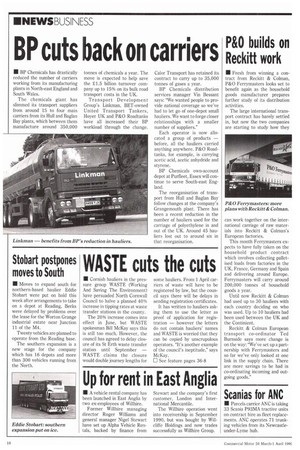BP cuts back on carriers
Page 12

If you've noticed an error in this article please click here to report it so we can fix it.
• BP Chemicals has drastically reduced the number of carriers working from its manufacturing plants in North-east England and South Wales.
The chemicals giant has slimmed its transport suppliers from around 15 to four main carriers from its Hull and Baglan Bay plants, which between them manufacture around 350,000 tonnes of chemicals a year. The move is expected to help save the £1.5 billion turnover company up to 15% on its bulk road transport costs in the UK.
Transport Development Group's Linkman, BET-owned United Transport Tankers, Hoyer UK and P&O Roadtanks have all increased their BP workload through the change. Calor Transport has retained its contract to carry up to 35,000 tonnes of gases a year.
BP Chemicals distribution services manager Vin Bessant says: We wanted people to provide national coverage so we've had to let go of one-depot small hauliers. We want to forge closer relationships with a smaller number of suppliers."
Each operator is now allocated a group of products — before, all the hauliers carried anything anywhere. P&O Roadtanks, for example, is carrying acetic acid, acetic anhydride and styrene.
BP Chemicals own-account depot at Purfleet, Essex will continue to serve South-east England.
The reorganisation of transport from Hull and BagLan Bay follow changes at the company's Grangemouth plant. There has been a recent reduction in the number of hauliers used for the carriage of polyethylene in and out of the UK. Around 45 hauliers lost out to around six in that reorganisation.




























































































